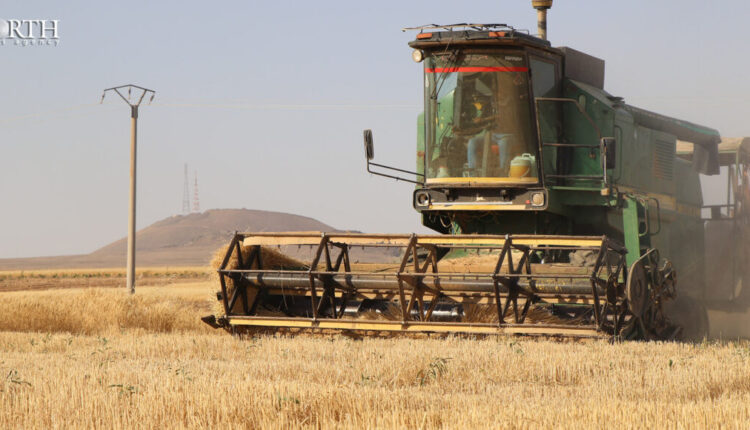Syria Launches Tender to Buy 100,000 Tons of Wheat Amid Food Security Concerns
By Kardo Roj
DAMASCUS, Syria (North Press) – The Syrian government has issued an international tender to purchase 100,000 tons of soft milling wheat, European traders reported on Wednesday. The move comes as Syria seeks to bolster its grain reserves amid economic challenges and food security concerns.
According to traders cited by Reuters, the General Establishment for Cereal Processing and Trade will evaluate bids within 15 days of the tender’s closing date, which is believed to be March 10. The wheat shipments must be delivered within one month of contract signing, with 80% of payments made upon arrival and the remaining 20% settled 15 days later.
This tender marks Syria’s first major grain purchase since a government transition in December 2024, raising questions about the country’s ability to restore international confidence in its agricultural trade.
A trader familiar with the deal told Reuters that this tender “could serve as an indicator of whether the new Syrian administration can build sufficient trust in the global wheat market to secure large-scale purchases.”
Once self-sufficient in wheat production, Syria’s agriculture sector has suffered from a decade of conflict, economic sanctions, and climate-related challenges. The country relies heavily on imports, particularly from Russia, its key ally and wheat supplier.
Although no official sourcing preference has been announced, past Syrian tenders have favored Russian wheat, often facilitated through agreements that circumvent Western sanctions. However, the global grain market remains volatile due to geopolitical tensions, supply chain disruptions, and fluctuating wheat prices.
Syria’s tender comes at a time when international wheat supplies are tightened by disruptions in the Black Sea region and ongoing economic sanctions affecting financial transactions. Some traders remain cautious, given the logistical and payment risks associated with doing business with Syria under existing U.S. and European sanctions.
As the March 10 deadline approaches, industry experts will be closely watching how international suppliers respond to Syria’s latest attempt to stabilize its wheat supply.

